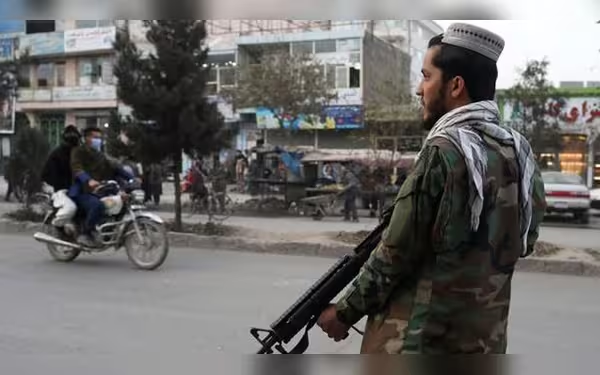Saturday, November 16, 2024 07:24 PM
Taliban Enforces Ban on Images of Living Beings in Media
- Taliban prohibits images of all living things in media.
- New law restricts freedom of expression in Afghanistan.
- Journalists face challenges under stringent media regulations.
 Image Credits: thenews.com.pk
Image Credits: thenews.com.pkThe Taliban's new law bans images of living beings in media, raising concerns over freedom of expression and journalism in Afghanistan.
The Afghan Taliban have recently introduced a new law that significantly impacts the media landscape in Afghanistan. This law specifically prohibits the publication of images depicting all living things, which includes humans, animals, and plants. The Taliban's approach to media regulation is rooted in their interpretation of Shariah law, which they claim aims to uphold religious values and prevent any form of disrespect towards Islam.
Prior to this new legislation, there were already restrictions in place for Taliban officials in Kandahar, who were not allowed to take photos or videos of living beings. However, this earlier rule did not extend to news media outlets. With the introduction of the new law, the Taliban are tightening their grip on media practices, ensuring that all forms of visual representation align with their strict religious guidelines.
This move raises significant concerns about freedom of expression and the role of journalism in Afghanistan. Media outlets are now faced with the challenge of reporting news while adhering to these stringent regulations. The implications of such a ban could lead to a more controlled and censored media environment, where the portrayal of reality is heavily filtered through the lens of the Taliban's ideology.
Moreover, the ban on images of living things could hinder the ability of journalists to effectively cover important stories, especially those related to human rights, social issues, and environmental concerns. The absence of visual representation may also limit the public's understanding of critical events happening within the country.
The Taliban's promise to ban images of living things in media is a significant step towards further restricting freedom of the press in Afghanistan. As the media landscape evolves under these new regulations, it is crucial for the international community to remain vigilant and advocate for the rights of journalists and the importance of free expression. The future of media in Afghanistan hangs in the balance, and the implications of these laws will be felt for years to come.













